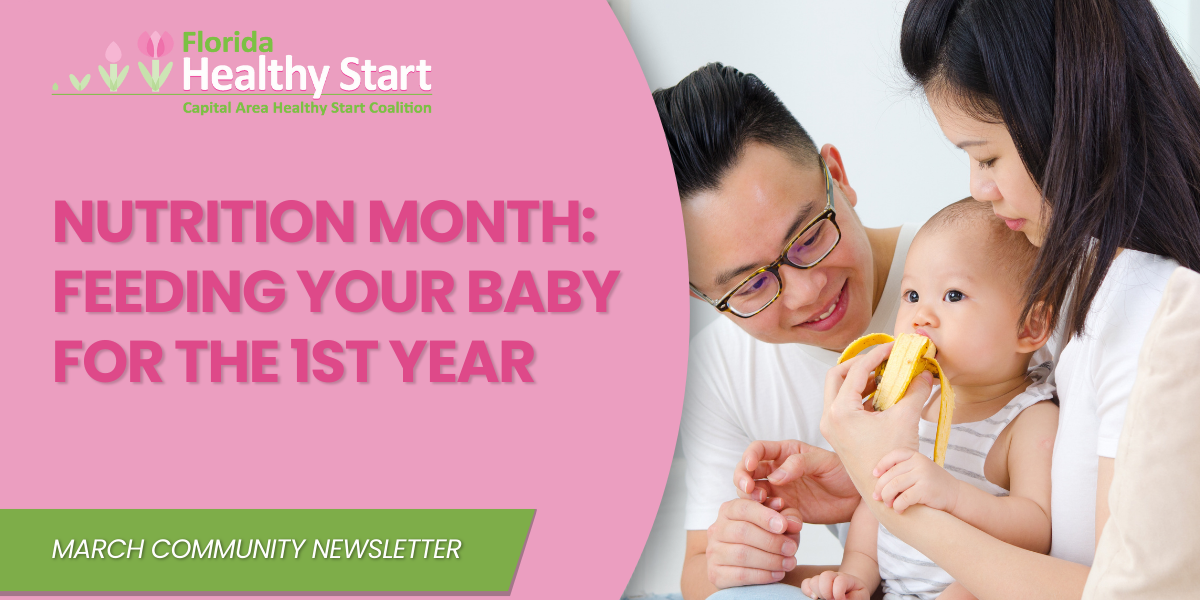March is National Nutrition Month, and we celebrate this holiday to encourage healthy eating!
It’s no secret that the food we eat fuels our daily activities — but that is especially vital when those daily activities include caring for a newborn and breastfeeding. Previous research has shown that practicing healthy eating habits can speed recovery, promote milk production, and support overall well-being after giving birth.
Women’s bodies go through many changes during pregnancy and childbirth, both physically and emotionally. While many women feel mostly recovered by 6-8 weeks, it can take some months to feel like themselves again. It is estimated that 15% – 25% of women will struggle with a maternal mental health complication, such as depression or anxiety, during the postpartum period.
However, recent studies have shown that nutrition can play a role in reducing your risk for postpartum depression, as nutrient deficiencies can play a role in postnatal mood disorders. Omega-3 fatty acid, folate, vitamin B12, iron, calcium, selenium, and zinc deficiencies have all been linked to mood disorders, and pregnancy typically depletes your stores of many of these nutrients. These nutrients can often be found in lean meats, seafood, eggs, avocado, fruit, vegetables, beans/legumes, and whole grains.
Consequently, as healthcare providers, it is crucial to educate your patients on the importance of post-partum nutrition. And while it’s important to realize that many components contributing to postpartum depression are not necessarily things that can be controlled or prevented, there are other aspects of wellness that we do have some degree of control over, like how we care for and feed our bodies.







